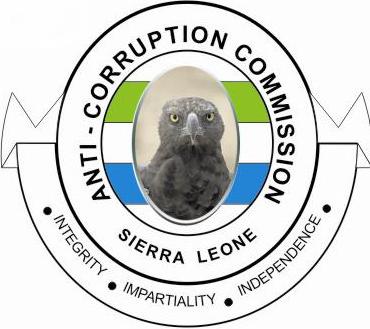By: Sylvanus Blake – Public Relations Officer, ACC
The Deputy Commissioner of the Anti-Corruption Commission Sierra Leone (ACC-SL), Augustine Foday Ngobie has joined over one hundred Focal Persons and Project Staff from the ACC-SL, the National Commission for Social Action (NaCSA), the National Youth Commission and the Ministry of Labour for a three-day training workshop at the Gallinesse Paradise Resort in Bo, Southern Sierra Leone. Staff from other partner institutions like the Local Councils, Environmental Protection Agency (EPA), service providers including banks and telecommunication companies, etc. were also part of the training.
The training was on the rollout of the Environmental and Social Framework (ESF) in the World Bank-supported projects like the Productive Social Safety Net and Youth Empowerment (PSSNYE) Project.
The workshop, which was co-designed and organized by NaCSA and the World Bank Country Management Unit’s (CMU) Environmental and Social Division and facilitated by experts from the World Bank CMU’s Environmental and Social Division, was aimed at deepening the understanding of project staff and focal persons on the ESF value proposition in the context of the PSSYNE and how to practically apply them during project implementation. The training will enable project staff, implementing partners, service providers, and municipal and local councils to align with the PSSNYE project operations on ESF Standards.
The training program will also provide several benefits including reducing the project’s environmental and social risk and improving project outcomes, thus delivering the twin goals of reducing extreme poverty and promoting shared prosperity through social risk management.
The Deputy Commissioner of ACC, who has been at the forefront of the implementation of the Grievance Redress Mechanism (GRM) component of the Social Safety Net (SSN) at the ACC, started off by acknowledging the support of the World Bank and other partners to the development of Sierra Leone. Mr. Ngobie stated that the training package will undoubtedly improve the skills and capacity of project staff and other stakeholders to enable them adequately and amicably address the ever-growing and sometimes conflict-triggering ESF issues in all projects.
The ACC Deputy Commissioner said that with the involvement of all relevant stakeholders in implementing projects, the risk of corruption and other negating factors will be eliminated or reduced greatly. He encouraged all participants to meaningfully contribute to the learning process, share experiences and take the lessons as a relevant toolkit to their operations and duties going forward.
Earlier, the Commissioner of the National Youth Commission Sierra Leone, Mr. Ngolo Thomas Katta, was full of admiration for the training objectives and the caliber of stakeholders present. He stated that young people are among the most affected when projects and programs are undermined by environmental, corruption, labour and other issues. He called on all present to take the opportunity presented by the World and NaCSA seriously for the overall development of Sierra Leone and the aspirations of the youth.
Environmental and Social issues like land acquisition, reclamation, voluntary or involuntary resettlement, transparent and fair payment of compensations when due, etc, have always had their reverberating negative effects on projects and programs, when not properly managed. How to address issues like labour risk and working conditions, occupational health and safety for road construction and rehabilitation, etc. were all part of the training package including, detailed stakeholders focused group discussions, apt case studies analysis and group works.



